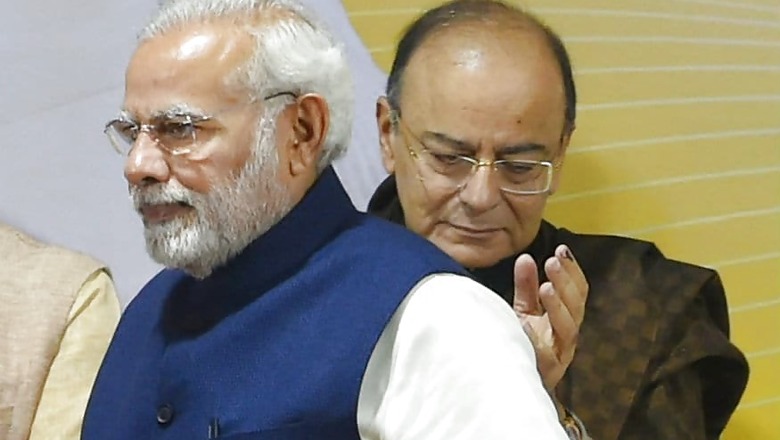
views
New Delhi: Salaried and business classes can expect major tax relief in Union Budget 2018-19 to be presented by Finance Minister Arun Jaitley today since the government would like them in its corner before the Lok Sabha elections next year. This is the Narendra Modi government’s last full-fledged Budget before the 2019 General Elections. Next year, the government will present a Vote on Account instead of a traditional budget.
According to a report by the State Bank of India (SBI), with the rise in personal disposable income post the 7th Pay Commission, the Income Tax exemption limit needs to be raised by Rs 50,000 to Rs 3 lakh. The move will benefit around 75 lakh people, it said. The SBI's Ecowrap report added that if the exemption limit of interest payments under housing loan is increased to Rs 2.5 lakh from Rs 2 lakh, it will benefit 75 lakh existing home loan buyers and cost the government just about Rs 7,500 crore.
The government has periodically increased the Income Tax slabs from Rs 22,000 in 1990-91 to Rs 2.5 lakh in 2014-15.
Yet another sign of a tax relief was the Finance Ministry’s reply to Congress MP Shashi Tharoor that it would consider his suggestion to increase the tax exemption limit for pension up to Rs 5 lakh.
Responding to a letter written by Tharoor in late September, Minister of State for Finance Shiv Pratap Shukla had said that the suggestion that pension up to Rs 5 lakh per annum should be exempted from Income Tax was examined. "The proposal would be examined during the exercise for the ensuing Union Budget 2018 and the outcome would be reflected in the Finance Bill, 2018," said the letter, which was tweeted by Tharoor.
According to a Deloitte survey covering 120 professionals across the sectors, close to 50 percent respondents felt that tax reforms, particularly tax litigation, should be the most critical priority for government. This was followed by reforms in the real estate sector. "Half of the survey respondents (50 per cent) expect corporate tax rate to be reduced to 25 per cent from 30 now to all companies as was committed earlier," the survey said.
"Given the strict measures taken by government around curbing black money, it may be the appropriate time to reduce the tax rate," it added. Corporate India also sought lower tax and more incentives for investments, while exporters called for quicker GST refunds at a meeting with Finance Minister Arun Jaitley. The Finance Minister exhorted India Inc to make investments in infrastructure sector to build a stronger India.
Private investment, along with public and foreign investments, are the key to boost growth and create job opportunities, he had said in his opening remarks during his third pre-Budget consultation meeting with business leaders and representatives of various industry chambers, the Finance Ministry had said in a statement.
Payment of Gratuity Amendment Bill 2017 is also likely to be passed in the Budget session, which will make formal sector workers eligible for tax-free Rs 20 lakh gratuity.
At present, formal sector workers with five or more years of service are eligible for Rs 10 lakh tax-free gratuity after leaving the job or at the time of superannuation.
In what will strengthen the Centre’s revenue collections, experts are of the opinion that the government is likely to do away with capital gains tax exemption in the Budget.
At the time of sale of any long-term capital asset, the gains are usually high and are currently taxed at 20%; the resultant figure, which is to be paid as tax, computes to be a very large amount liable to be paid as long-term capital gain tax.
However, the government provides for an exemption if the taxpayer reinvests the amount in certain specified forms of investments and can thereby save long-term capital gain tax.
Also, Short-Term Capital Gains (STCG) from sale of shares within a year are currently taxed at 15 percent, while the Long-Term Capital Gains (LTCG) from sale of shares after one year are tax-free.
“The government will most likely do away with capital gain tax exemption. It will no doubt dent the equity market, but will work in favor of the revenues. The government has been looking to do it for some time now. The same was suggested at a meeting of economists with the PM,” said Anil Gupta, secretary of the Vitta Salahkar Samiti, an RSS-inspired group of chartered accountants.




















Comments
0 comment